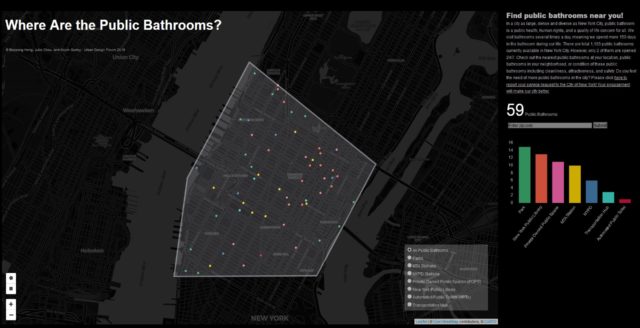Erasure, Remembrance, and Healing
by Farrah Daniel, Better Bike Share Partnership Writer
December 12, 2019
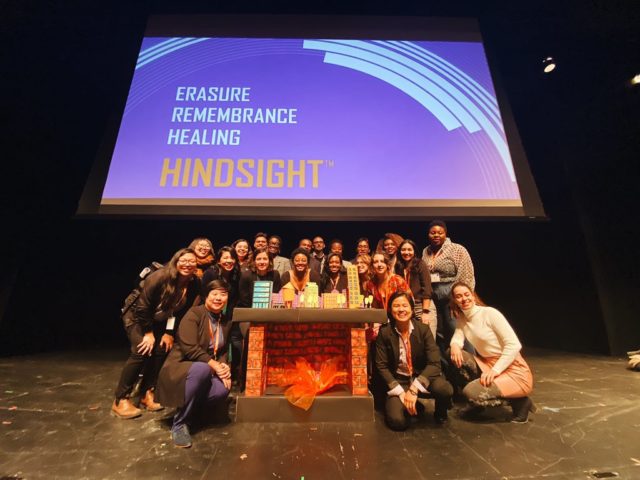
On December 6, 2019, more than 500 people convened at the New York City College of Technology in Brooklyn to attend the Hindsight Conference. The day-long event was hosted by the Diversity Committee of the American Planning Association (APA) New York Metro Chapter.
Following the trend of the last three years, the conference focused on a theme that reflected significant anniversary milestones in history.
Erasure, Remembrance, and Healing honored several anniversaries that were marked this year. In the conference’s program, committee members wrote that it “reflects on the intersection of urban planning, policy, and community development, with the erasure of history, collective amnesia, the movement of remembrance, and community healing.”
I was lucky enough to attend, joining a plethora of advocates and industry professionals (and young professionals to-be!) in receiving enlightening messages about urban planning through the diversity and social equity lens.
Here’s how it went:
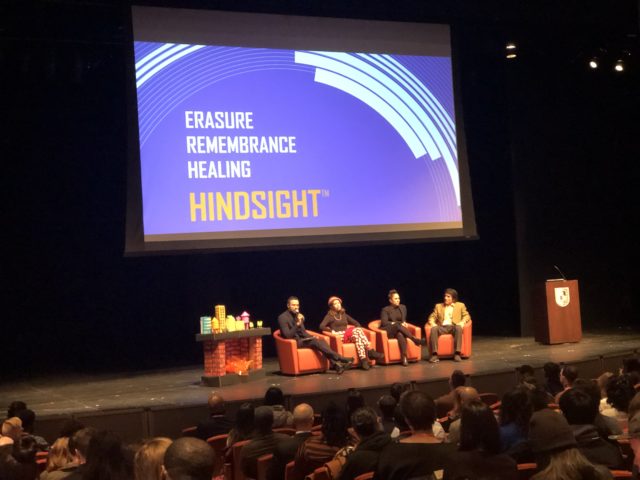
Addison Vawters moderating the Fireside Chat with Hindsight Conference keynote speakers.
The Fireside Chat
The conference began with a fireside chat moderated by Addison Vawters, an urban planner and cultural producer in New York City.
Apart from sharing their professional journeys, keynote speakers Rick Chavolla, April De Simone and Libertad O. Guerra joined Vawters to explore how historical injustices have shaped today’s development of communities of color, including within their own.
The entire 50-minute discussion and Q&A was filled with wisdom on progressive healing in communities of color, but I can’t seem to forget one of Chavolla’s last messages to the audience: “We can never let outside sources or influences pit us against each other. We need to stay in solidarity.”
The Sessions
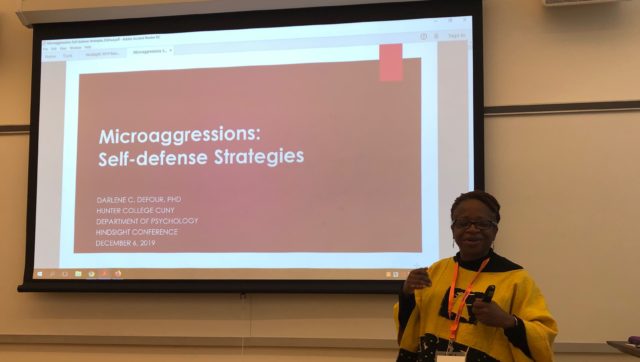
Darlene C. DeFour leading her breakout session, Coping With Microaggressions: Self-Defense Strategies.
The conference included five hour-long sessions that contained workshops, panels, performances, and a two-hour walking tour through Downtown Brooklyn — in total, there were 35 available breakout sessions, six exhibits and more than 130 speakers.
In varied ways, speakers and panelists shared rich histories and facilitated engaging discussions within presentations that reflected unique perspectives of erased communities. It seemed like every voice was heard.
I couldn’t attend everything, unfortunately, but here are a few highlights I captured, plus what others have documented and shared with the Diversity Committee via @DivComm on Twitter.
Resisting Erasure of Black Neighborhoods: Policy As Restoration & Reparation
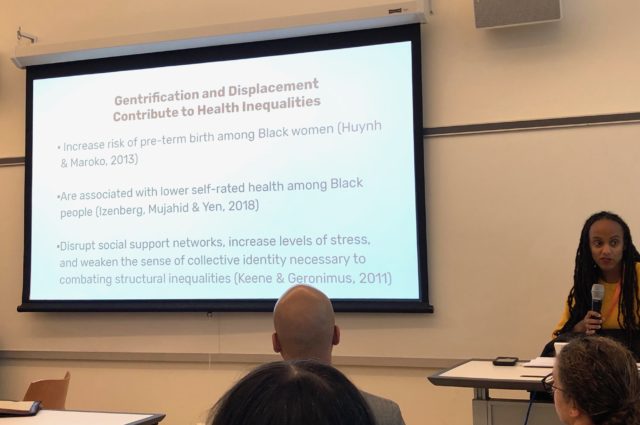
How do we decommodify the concept of land? Displacement, gentrification, and the intentional systemic targeting of black communities have created social inequities that are reflected in the massive health and financial disparities that continue to widen over time.
De-Centering Whiteness In Progressive Urban Planning Policies and Practices
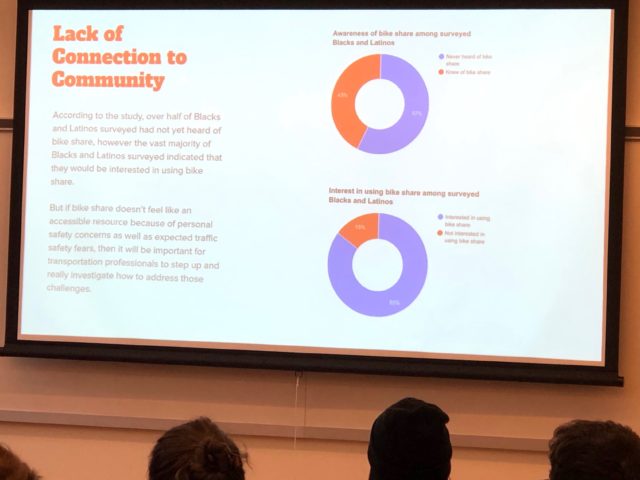
How do we re-define good neighborhoods? Speakers Jasmine Burnett and Cameron Boissiere explained how exclusionary zoning and existing discriminatory FHA housing policies weaponize Georgia’s black neighborhoods, showing that segregation is still alive in many forms.
Building Equitable Brooklyn in Black Co-operative Tradition
The anti-gentrification efforts of this black-led food co-op go a long way in giving black and brown residents back their visibility, access, and ownership.
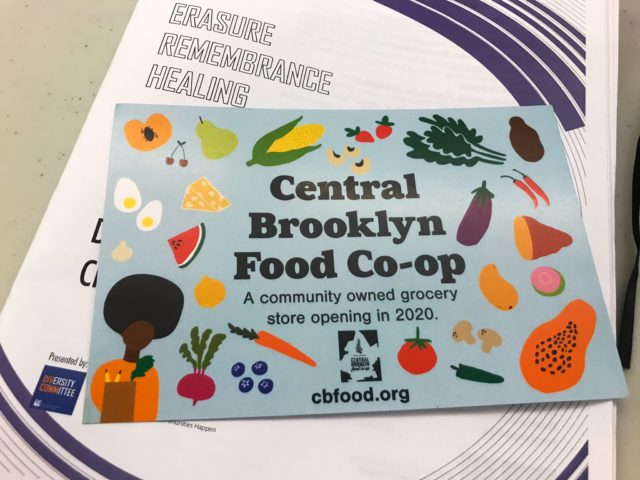
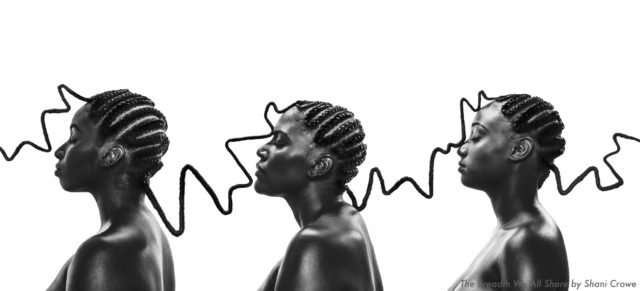
Source: Shani Crowe
Braids: The Essence of Urban Design
Ambar Johnson from the LivableStreets Alliance intertwined Black hair braiding with the building blocks of cities. “Thoughtful urban planning like hair braiding takes time and involves the community” – shared committee member Daphne Lundi, via Twitter.
Public Bathrooms for All
Attendees got to assemble in small teams to brainstorm locations for public bathrooms throughout New York City. Did you know only two are available for the entire city 24/7?
Y’all Means All: APA Texas Case Study
El Paso planning professionals discussed their role in dismantling racism to promote healing in their communities when attacks occur. Additionally, what can planners do to promote diversity and inclusion within the profession?
Worthy mentions:
- A Conversation With Food Delivery Workers
- Planners As Community Healers
- Queer Urbanism and Design: Past, Present, Future
Exhibits
Throughout the sessions and lunch, attendees had plenty of creative and beautifully crafted exhibits to peruse. Here were some crowd favorites:
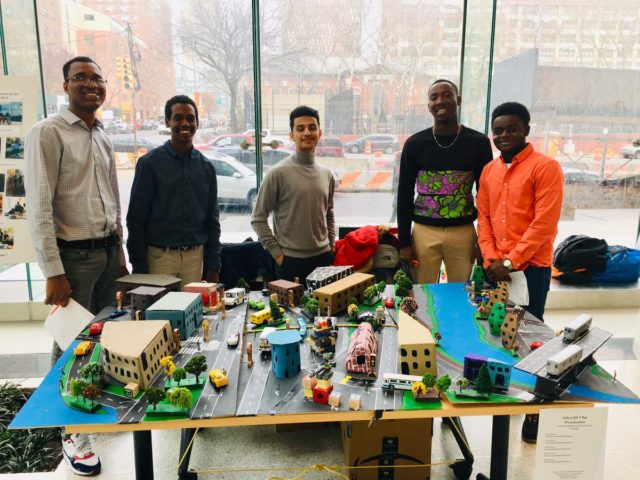
Same Fare, Unequal Service
by Ellis Prep Academy students Claudio Barbosa, Amadou Barry, Abdallah Sevede, Victor Silvestre and Hamza Zidany
ELLIS Prep Academy students presented a model and a community project about the BX9 bus, one of the most crowded and used public transportation options around their school.
Museum of Remembrance by Marlon Williams of Living Cities
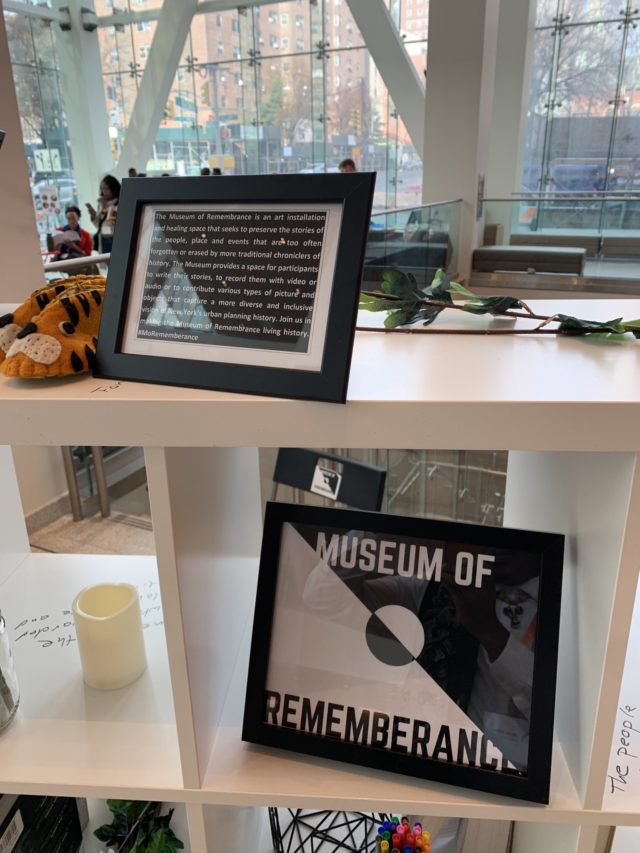
Source: Marlon Williams
This art installation displayed the preservation of the stories of the people, places and events that have been erased in white-washed chronicles of history.
Narratives of Colonization, Whispers of Resistance by Taylor Kabeary and Eduardo Ruas of Pratt University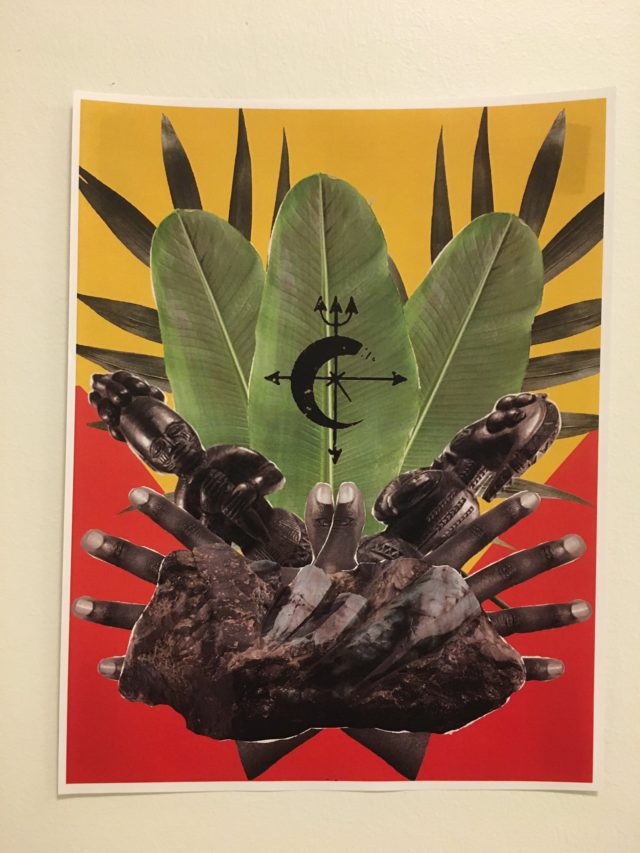
This exhibit aimed to highlight narratives that were erased in the processes of colonization.
Until Next Year…
Check out the Hindsight Conference program book to learn more about the dozens of amazing sessions and speakers I didn’t mention.
You can also search these hashtags on Twitter and Instagram to experience the event through other perspectives: #equityinplanning, #hingsight2019, #hindsight2019nyc, #400yrs, #stonewallriots, and many more that can also be found in the program.
Thank you to all of the incredible organizers, creators and participants who worked tirelessly to produce an unforgettable event, and the sponsors for helping bring ideas to life.
I’m already excited to see what Hindsight 2020 has to offer!
What’d you think about the conference? Write us and share your thoughts on the event.
The Better Bike Share Partnership is funded by The JPB Foundation as a collaborative between the City of Philadelphia, the Bicycle Coalition of Greater Philadelphia, the National Association of City Transportation Officials (NACTO) and the PeopleForBikes Foundation to build equitable and replicable bike share systems. Follow us on Facebook, Twitter and Instagram or sign up for our weekly newsletter. Story tip? Write farrah@peopleforbikes.org.

